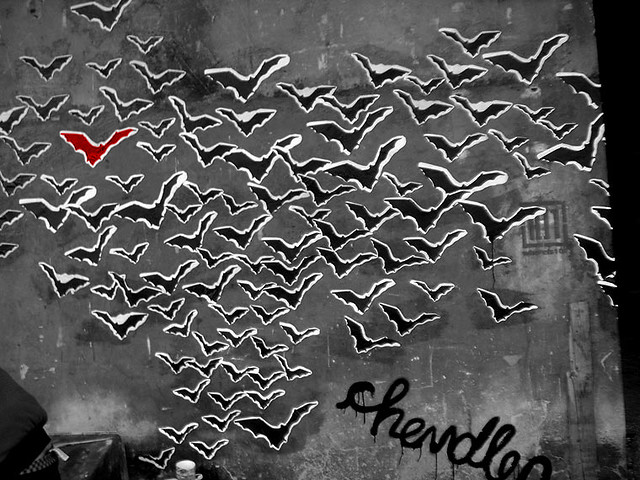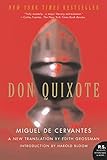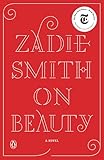
A few years ago, a woman I hardly know and whose name I’ve now forgotten invited me to become her friend on Goodreads, a social-networking site on which users log the books they’re reading (or have read, or intend to read), and in some cases write casual reviews of these books and rate them on a scale of one to five stars. I thanked the woman but told her I didn’t participate in social-networking websites. Because, I didn’t elaborate, I found them more estranging than connecting, or suspected I would, and because I didn’t want to turn myself into some kind of product (not true: in my huffing, protracted climb from anonymity to obscurity, I’ve attempted quite a lot of that), and because I was very tired, and finally because I couldn’t afford another distraction from my writing or from checking my email forty times a day. I’ve since softened my position on all this and now have an impressive though not obscene number of friends on Facebook. Sometimes these nominal friendships bring into depressing relief my paucity of substantive friendships, but on the whole I’d say I’m slightly less lonely and no less productive (which is to say: not terribly productive) than I was before I joined Facebook. But this essay, if that’s what it is, isn’t about Facebook (boring), it’s about Goodreads (sort of).
So some night this past winter—it was very late; I’d been having trouble sleeping—I found myself Googling a minor figure in the publishing industry, and in doing so came across his Goodreads page, which he allows to be viewed by friends and non-friends alike. His tastes were impeccable and strikingly similar to my own, which is odd because my tastes aren’t impeccable. I studied this man’s picture; he seemed elegant, loyal, athletic. I imagined him as my literal, that is, non-internet friend, and also as my champion, my Colonel Tom, imagined our spandexed bike rides together, our shared energy bars, our semicolon debates. I joined Goodreads but didn’t send this man a friend request, not wanting to seem like some scheming gnat, nor did I elect to follow him (as one follows a Twitter feed), not wanting to seem like some mousy sycophant. I spent another hour or so snooping around the site, but didn’t do anything with my own just-established Goodreads page, mostly because I was very tired. Then I avoided the site for about six months, during which period I was mainly dealing with a bat infestation in our old and porous house.
Recently some other internet research of dubious value led me back to Goodreads, where I discovered that, during my absence, I’d received three friend requests. That seemed flattering, three is more than two after all, and in the embrace of my small public I finally put some information on my Goodreads page. First I noted the book I was currently reading, which I won’t note here, and then I considered adding my picture to the page, though in the end that seemed like too much work. Satisfied, I turned off the computer and read more of the book I’d just advertised while advertising myself on Goodreads. As I was reading, I sometimes paused to think of a pithy, even poetic comment I might post on Goodreads after finishing the book. I sometimes review books professionally, and in fact have a few books I should be reviewing now, so I didn’t want to write anything on Goodreads that might resemble a book review; I don’t mind procrastinating on writing book reviews, it’s one of my specialties, but it seemed foolish to put off writing a paying (barely remunerative) book review in order to write a volunteer one. But as I said, I thought I could come up with commentary of a different stripe, something terse and poetic—more and more I was thinking of something poetic. Such as: But I couldn’t come up with anything, or nothing good, even after I’d actually finished the book. I wrote and revised, took a walk, revised further. All junk. And even if I were to come up with something good, I thought, it might set an overhigh standard, and then, driven to routinely meet or exceed that standard, I’d devote altogether too much time to my Goodreads poems, distracting me from more serious writing as well as from checking my email and humanely (all in all) removing bats. The bats were just one of the things keeping me up at night; I blamed fatigue, in part, for my failure to write even one presentable Goodreads poem. I decided to ignore the comments box and just give the book a star rating.
 All my favorite books are four-star books: great (or very good) books that here and there bore, vex, or disgust me. “Might I confess to finding that it is exquisite to be of two minds regarding works or art?” Robert Walser wrote in a four-star short story. “To find fault with something that I welcome on the whole, how nice I find it is!” Exactly, and I suppose there was no avoiding that frothy exclamation point. Although no artwork is perfect, some are perfecter than others, and whenever a book offers too few opportunities for fault-finding, flirts too brazenly with perfection, with five-starness, I lose interest. For me to give a book five stars would be to insult it, would be more or less the same as giving it three stars. Still, it would look sophomoric to give a close-but-no-cigar four stars to, say, Don Quixote, a book I love, even though parts of it bore, vex, or disgust me. Especially because at some point, for instance when a friend publishes a book, I’m going to trot out all five of those stars. I don’t have many writer friends, or many non-writer friends, my Facebook account notwithstanding, but I have a few, and the next time one of them publishes a book, I’d be inclined to give that book the maximum rating on Goodreads, even though none of my friends—I can just tell—are capable of writing a five-star book (which by my lights is a good thing), and no doubt some of them will write two-star books. And to those two-star books, fair books, neither good nor bad, I’d happily fill in five stars on Goodreads and hope that my friends would do the same for me if and when my two-star book quietly hits tens or even dozens of shelves. But that would make the four stars I gave Don Quixote look even dumber, and then everyone—all my friends, my three Goodreads friends—would know that either my judgment is unreliable or my rating system is a sham. I could refuse to treat my friends’ books on Goodreads, and inform them, my friends, of this policy so they wouldn’t wonder why I was neglecting their books, their mostly as-yet-unpublished books. But I fear my Goodreads friend numbers, already low, might suffer as a result. The whole pursuit seemed doomed. Better, I decided, to skip the star rating along with the commentary, simply let the book speak for itself.
All my favorite books are four-star books: great (or very good) books that here and there bore, vex, or disgust me. “Might I confess to finding that it is exquisite to be of two minds regarding works or art?” Robert Walser wrote in a four-star short story. “To find fault with something that I welcome on the whole, how nice I find it is!” Exactly, and I suppose there was no avoiding that frothy exclamation point. Although no artwork is perfect, some are perfecter than others, and whenever a book offers too few opportunities for fault-finding, flirts too brazenly with perfection, with five-starness, I lose interest. For me to give a book five stars would be to insult it, would be more or less the same as giving it three stars. Still, it would look sophomoric to give a close-but-no-cigar four stars to, say, Don Quixote, a book I love, even though parts of it bore, vex, or disgust me. Especially because at some point, for instance when a friend publishes a book, I’m going to trot out all five of those stars. I don’t have many writer friends, or many non-writer friends, my Facebook account notwithstanding, but I have a few, and the next time one of them publishes a book, I’d be inclined to give that book the maximum rating on Goodreads, even though none of my friends—I can just tell—are capable of writing a five-star book (which by my lights is a good thing), and no doubt some of them will write two-star books. And to those two-star books, fair books, neither good nor bad, I’d happily fill in five stars on Goodreads and hope that my friends would do the same for me if and when my two-star book quietly hits tens or even dozens of shelves. But that would make the four stars I gave Don Quixote look even dumber, and then everyone—all my friends, my three Goodreads friends—would know that either my judgment is unreliable or my rating system is a sham. I could refuse to treat my friends’ books on Goodreads, and inform them, my friends, of this policy so they wouldn’t wonder why I was neglecting their books, their mostly as-yet-unpublished books. But I fear my Goodreads friend numbers, already low, might suffer as a result. The whole pursuit seemed doomed. Better, I decided, to skip the star rating along with the commentary, simply let the book speak for itself.

 This would be my clean, disinterested procedure: no clever (yet moving) poetic fragments, no reductive star ratings, just a log of the books I’ve read, or skimmed. Many people, including Art Garfunkel, keep such records. If you go to Garfunkel’s website, as I sometimes do, you can see every book he’s read since 1968. In April of ’72 he read Alan Watts’ The Wisdom of Insecurity; in June of that year, when he and Simon reunited for a McGovern fundraiser at Madison Square Garden, he read no books (or finished up the Watts); last July he read Cicero’s On the Good Life, followed by Zadie Smith’s On Beauty. He was On. Of course I’m not famous and interesting like Art Garfunkel is, nor can I sing harmony, but my book log, I thought, might nonetheless be of interest to my three Goodreads friends, one of whom I’ve never actually met, or might at least be of interest to a future version of myself. Twenty years from now I would know that in June of 2010 I reread (skimmed) a book about insomnia, among others.
This would be my clean, disinterested procedure: no clever (yet moving) poetic fragments, no reductive star ratings, just a log of the books I’ve read, or skimmed. Many people, including Art Garfunkel, keep such records. If you go to Garfunkel’s website, as I sometimes do, you can see every book he’s read since 1968. In April of ’72 he read Alan Watts’ The Wisdom of Insecurity; in June of that year, when he and Simon reunited for a McGovern fundraiser at Madison Square Garden, he read no books (or finished up the Watts); last July he read Cicero’s On the Good Life, followed by Zadie Smith’s On Beauty. He was On. Of course I’m not famous and interesting like Art Garfunkel is, nor can I sing harmony, but my book log, I thought, might nonetheless be of interest to my three Goodreads friends, one of whom I’ve never actually met, or might at least be of interest to a future version of myself. Twenty years from now I would know that in June of 2010 I reread (skimmed) a book about insomnia, among others.
Having worked through these dilemmas, I needed to start a new book. This is one of my favorite things to do, to choose and start a new book. I try to really concentrate on my emotional conditions and intellectual acuity at that moment, and consider what plans I have over the next few days or weeks, and then home in on the one book, of all the books I know, or that I happen to find in my bat-ridden home or at the nearest bookstore (where I believe I’ve also seen bat droppings), that I most want, most need, to read, so that I won’t put the book at a disadvantage by reading it at the wrong time. These pains notwithstanding, I often choose the wrong book. It may be that I like to choose and start books more than I like to finish them. Probably I abandon sixty percent of the books I start. Sometimes I fail the book (and set it aside with some shame); sometimes the book fails me (and I hurl it away with some relish). As it happens, the book I was thinking about reading next was one I’d left unfinished several years ago, too many years ago to start from where I’d marked page 122 with the business card of a sleep therapist, it may have been, or a bus transfer (I threw out the bookmark without studying it). But starting again at page one is fine, since, as I just explained, I love to start books. As it also happens, I’d once, over ice cream with a friend I’m almost certain, claimed to have read and enjoyed this book—not entirely false, I’d read and enjoyed part of the book, and I’d read three other books by the same writer, so perhaps I had the right to fudge. Besides, I’d read all the books years ago—not twenty years ago, granted, but six, seven, or eight—long enough for memory to do its destructive, distorting work, to the point where the three wholly read books were about as hazy to me as the mostly unread one. Still, I didn’t want to indicate to my Goodreads friends that I was currently reading the book as if it were brand new to me, since after all I’d had the sense to start the book ages or at least seven years ago, when its author was a bit less fashionable, and furthermore I didn’t want my ice-cream buddy to discover and friend me on the site (I would have to accept), then call my bluff, humiliating me in front of the others, and yet I didn’t want to heap lies on lies in the comments section: “What a delight to revisit this longtime favorite,” or the like. I would have to start some other book, I decided. And probably it would be best, as long as I was on Goodreads, not to read any book I had earlier started but not finished, or any book I’d ever directly or obliquely but either way falsely claimed to have read in its entirety, or any book that I feel I should have read long ago, but didn’t, partly because I was so tired.
The next book I wanted to read was a famously difficult work of philosophy that, to judge from my previous experience with the same book, I would understand only sporadically and almost certainly not finish. Undoubtedly it would look pretentious to list this book on Goodreads; perhaps it would even be pretentious. But I might, I thought, be able to clear the air of some pomposity by reading the philosophy book in tandem with something breezy, even utilitarian (in the non-philosophical sense)—Psyching Up for Tennis or something like that. But I wasn’t about to read Psyching Up for Tennis or tell more lies. I decided to look for another book, but each one I settled on was wrong for Goodreads: too fancy, too populist, too hip, too square, too predictable, too self-consciously curve bally. I would have to give up Goodreads or give up reading.
I deleted my account, but felt no relief. Last night, disturbed by anxieties only tangentially related to Goodreads, I had trouble falling asleep again, and eventually got up at three-thirty, ate a bowl of cereal, and started a new book, a smart, soulful little book of poetry, a book that might, I thought, cast a becoming light on its public readers and even in some small way boost the poet’s career. I thought I could give Goodreads another go, and that this time I would relax and let the site link me to kindred spirits, let it give me fizzy blips of communitarian joy, let it alert me to overlooked books that I too might come to cherish. And it was these optimistic thoughts, and the book of poetry, which started to drag, that finally allowed me to close my eyes, make heavy my limbs, and settle into what I believe were the most restful three hours of non-postcoital adult sleep I have ever known.
[Image credit: pachakku]








